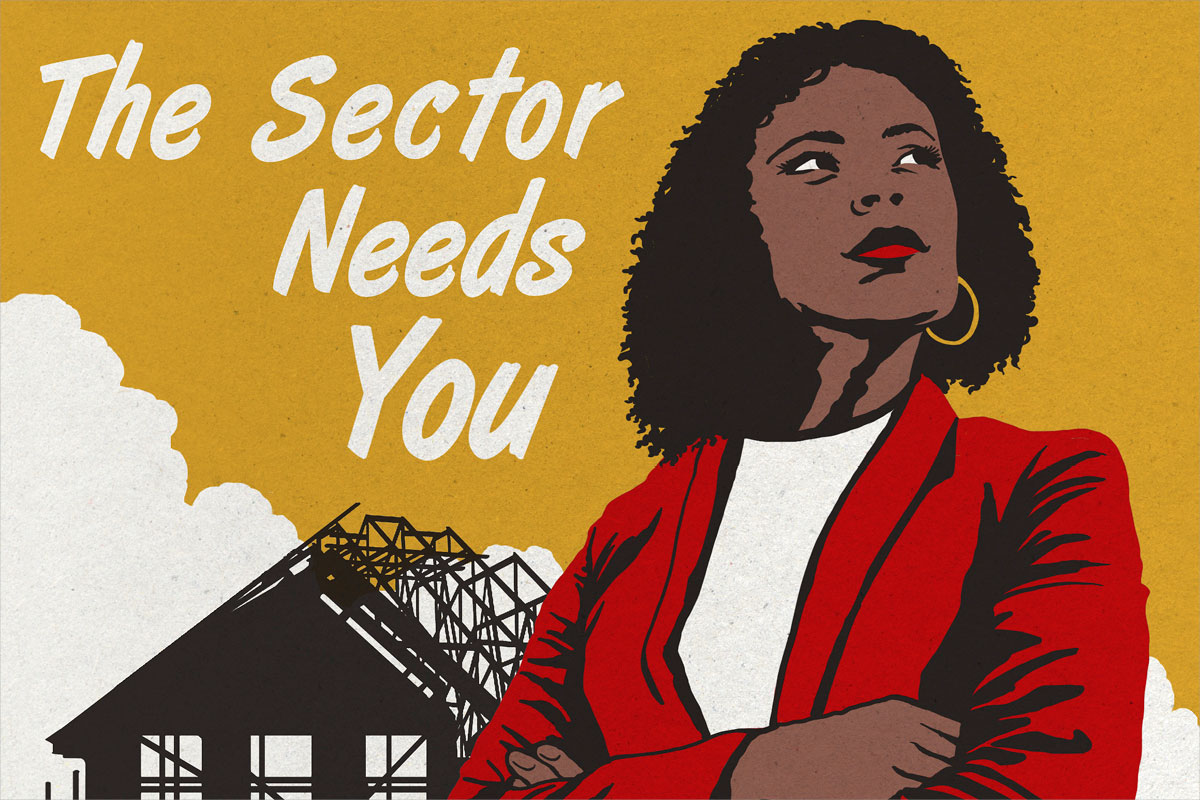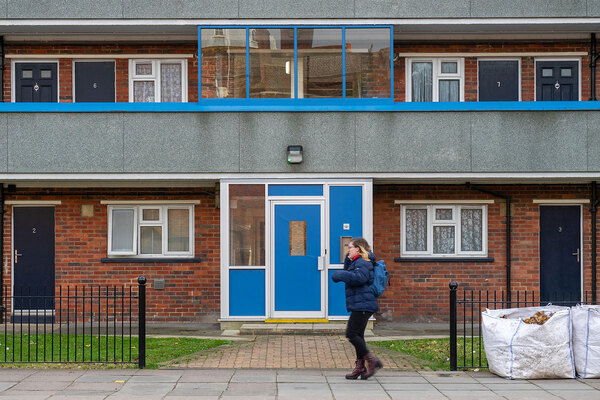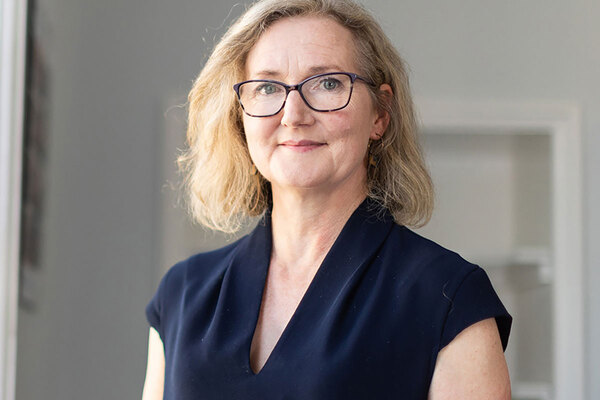You are viewing 1 of your 1 free articles
The struggle to recruit procurement professionals
Procurement professionals require a varied skillset and have a huge role to play in helping the sector build and improve standards of existing homes. However, recruitment has proved difficult recently. Sian Norris reports. Illustration by Gary Walton
“There is a problem with recruiting procurement professionals in social housing,” says Guy Stapleford, head of consultancy services at procurement framework firm Procurement for Housing. Although there is a lack of hard data to quantify the shortage, anecdotal evidence from numerous professionals who spoke to Inside Housing tells its own story. Inside Housing looked into why the recruitment challenge is occurring, and what landlords are doing to attract staff.
Procurement professionals play a crucial role in housing associations. From understanding compliance and being up to date with all the latest regulations, to maintaining relationships with suppliers and supporting housing associations to take a more sustainable approach in the move to net zero, the job requires constant learning and specialist knowledge.
It also has an important role to play in meeting the demands of the housing crisis.
According to research from Centre for Cities, Britain has 4.3 million missing houses compared to the average European country. Housing charity Shelter estimates that 1.2 million households in England are currently stuck on a waiting list for a social home.
“Procurement is key to resolving the housing crisis,” Mr Stapleford insists. “Without a skilled and motivated workforce, houses won’t get built and people won’t have homes to live in.”
But despite procurement’s centrality in the housing sector, housing associations are experiencing barriers to recruiting staff. One sector expert, who asked to be quoted off the record, said they had seen up to a 50% rise in consultancy rates between 2019 and 2023, a sure sign that housing associations are facing challenges in recruiting their own teams.
The concern is that when workforce shortages happen, quality is compromised, which has a knock-on effect on the lives and well-being of social housing tenants. A drive to get the cheapest contracts while still being compliant, combined with inexperienced or unsupported staff, can lead to a lack of strategic thinking – which puts low costs over and above smart procuring. Staff shortages can also lead to teams repeating mistakes or poor practice, as there simply is not the resource to go back and evaluate projects to see what can be improved.
Those who spoke to Inside Housing agree that the issue is not a shortage of professionals, but a rising demand for their skills, with highly prized jobseekers being more selective about where to work.
This has been noted by Andrew Russell, assistant director of procurement at Stonewater, who recently recruited for his small and dynamic team of five. “There are a lot of procurement jobs available at the moment, not just within housing,” Mr Russell tells Inside Housing. “People in our vocation can therefore be quite selective about where they want to go.”
That rising demand for procurement professionals is borne, in part, by renewed recognition of the centrality of good procurement managers, following the intersecting supply chain crises caused by the pandemic, Brexit and the war in Ukraine.
“In many ways, the pandemic gave people a broader understanding of how interlinked supply chains are across the globe, not just in housing but in all aspects of the economy,” explains Martin Cawthorn, director of procurement at L&Q. “This led to an increasing recognition of the value procurement professionals can bring to the social housing sector, which led to a rise in demand for new staff. As in all cases, supply can take a while to catch up with demand.”
A final barrier facing procurement recruitment is a changing housing sector, with new challenges around sustainability, retrofitting and building safety regulations leading to pressurised teams having to adapt and develop to new environments, and at pace. While these changes are often exciting and motivating, it can lead to tensions between teams, with increasing demands on procurement from other parts of the housing association.
One way to resolve this, according to Gwen Beeken, managing director at Procure Plus, a not-for-profit company that specialises in the procurement of goods and services for new builds and repairs, is to encourage greater collaboration across housing associations, including by implementing and adapting frameworks designed to meet these challenges head on. Procurement teams can feel pressure to reinvent the wheel when, in fact, using and adapting existing frameworks allow for skill-sharing, collaboration, and the chance to bring greater value for money, job satisfaction and better staff retention.
“As a consortium, we’ve evolved dramatically so that although we absolutely continue to do procurement frameworks, we actually see our key role in being supporting procurement professionals to utilise those frameworks to get the best value for money,” Ms Beeken explains. “They can utilise standard documents and we support throughout the project, including a review at the end of the process to ensure both we and the customer maintain the continuous improvement.”
Mr Stapleford argues that in order to meet the skills shortage, the social housing sector can learn from the commercial sector, including when it comes to seeing procurement as a job that could and should involve a wider set of skills such as communication, relationship building and stakeholder management. “We need commercial instincts with a social heart,” he says.
“In the social housing sector, there’s now a need to recruit people who have a commercial or private sector set of knowledge and skills, as well as having an understanding of public sector regulations that drive public procurement,” Terence Wong, strategic commercial director at L&Q, tells Inside Housing. “That can make it difficult to recruit the right people.”
L&Q has experienced the increased demand for procurement professionals. It has doubled the size of its procurement team in the past couple of years, overcoming the hiring challenges by taking a new approach to finding good candidates, and by changing the way procurement works within the organisation.
“We have recruited from various sectors, from the NHS and the private sector,” explains Mr Wong. “We look at recruitment without restraint, finding people with expertise in different areas, but who have the key skills we need and who have a can-do attitude towards procurement.”
In numbers
4.3 million
‘Missing’ homes in Britain, compared to the average European country, according to Centre for Cities
1.2 million
Households in England on waiting lists for a social home, according to Shelter
45%
Procurement public sector employees who received a pay rise in 2022, compared with 67% in the private sector, according to CIPS
Wide set of skills
Like Mr Stapleford, Mr Cawthorn from L&Q believes that the specifications for a good procurement candidate have evolved to include a wider set of skills. On the one hand, this can put greater demands on team members who have to adopt new ways of working. On the other hand, it brings an opportunity to recruit from a larger pool of candidates, nurturing talent and upskilling staff.
“The demands on procurement professionals are broader than they used to be,” explains Mr Cawthorn. “Previously it would be relatively narrow: focusing on compliance, running tenders, that kind of thing. Now the requirements have more emphasis on soft skills.”
For Mr Russell at Stonewater, recognising that procurement can involve a range of skills helps to show potential new starters it is an exciting area to work in.
“When you look at procurement as a vocation, it is more than just buying and getting the cheapest deal,” he insists. “We have the skills to improve contracts in ways that businesses aren’t able to do themselves. You have to be a legal expert, a finance expert – you have to do people management, relationship management and project management. It’s really varied and interesting.”
“The role is much more focused on partnerships, and much more future-looking,” says Mr Wong. “What attracted me to this role is the opportunity to answer really key questions, such as how can we make our supply chains more sustainable? How can we work with SMEs as well as big suppliers? How do we keep our suppliers accountable? Procurement is no longer just about compliance, it’s about the ability to engage with your stakeholders, to build strong relationships, and to understand your products.”
Unsurprisingly, procurement professionals in the public sector have seen lower wage increases in recent years than their private sector peers. The Procurement Salary Guide 2022, compiled by the Chartered Institute of Procurement and Supply (CIPS), found that 67% of private sector professionals received a pay rise that year, compared to 45% of those in the public sector. However, the report also noted that while pay was still a driver, younger professionals were increasingly looking for employers that met their values.
“Procurement is no longer just about compliance, it’s about the ability to engage with your stakeholders, to build strong relationships, and to understand your products”
Broadening the scope of what procurement can mean has worked for L&Q and Stonewater. “Candidates coming to interview get excited about the different ways they can approach the role,” says Mr Cawthorn.
But the housing association has taken a second approach that has not only helped drive recruitment, it has improved retention. It is no secret in the sector that procurement has been an undervalued part of housing or, as Mr Russell describes, treated as “an obstacle, due to the extensive levels of governance we have to adhere to and the time that then adds to project delivery”. That lack of value has, understandably, helped to fuel issues with recruitment. To tackle this, L&Q has taken the decision to involve its procurement team in housing projects from the start, showing how procurement can add value, and ensuring their teams feel valued, too.
“We looked at the stage at which procurement was involved in a particular piece of work, and historically, it was often quite late on in the process,” explains Mr Cawthorn. “The result was that we weren’t able to make as big a contribution, because a lot of decisions had been taken and so our impact was a lot less. Now we’ve got a number of examples over the past two to three years where we’ve been involved at the inception of projects, with people saying it’s the best experience they’ve had at work.”
Similarly, Mr Russell is committed to training and upskilling his team, while encouraging them to take new approaches that use the most economically advantageous principle and delivering sustainability, quality and engagement with a wider range of suppliers.
“We’re challenging contractors to demonstrate a variety of things around the quality of their service,” he explains. “This is where the wider skills come in. We are engaging with them about how they manage their accounts, how they manage their supply chains, how they liaise with us as a customer, how they liaise with our tenants, how they empathise with our tenants to make sure the services they receive are better.”
With increased demand for procurement expertise, in an evolving sector meeting new challenges on sustainability and the housing crisis, Mr Stapleford is passionate about the potential for the role in the social housing sector, with his determination to meet the pressures on recruitment motivated by the need to make sure more people have secure, sustainable homes.
“It can often be seen as a job that is a bit distant from the human aspect of housing, but that is not really the case,” he explains. “People come into this sector because they are passionate about housing issues. Good procurement means more homes, and more good homes, where people can start to build their lives.”









